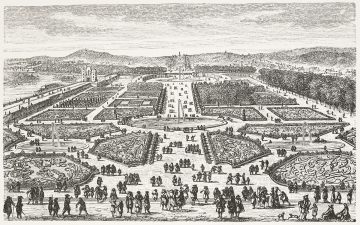Jessica Gross in Longreads:

In his new book, Proof!: How the World Became Geometrical, historian Amir Alexander advances an audacious claim: that Euclidean geometry profoundly influenced not just the history of mathematics, but also broader sociopolitical reality. In prose that makes his passion for the material both clear and catching, he describes how Euclid’s Elements present a vision of a perfectly rational order, but one that was viewed as purely theoretical: There was no place for geometrical ideals in messy reality. In the 1400s, Leon Battista Alberti, an Italian polymath, upended that understanding, countering that the world was, in fact, fundamentally geometrical. Other thinkers, from Copernicus to Galileo, followed. And, as Alexander argues, this sea change had profound implications: If the world was geometrical—not only rational, but also hierarchical and permanent—then that was the divinely ordained social order, too. Euclidean geometry, that is, was used to justify monarchy.
More here.
